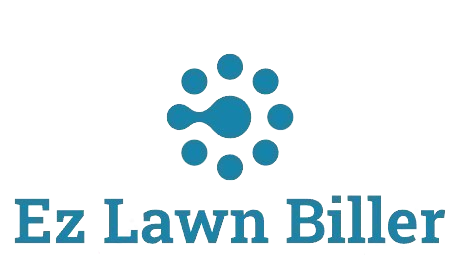Keeping your lawn care business compliant is essential for success. Discover effective strategies to ensure you meet all regulations while growing your business.
How to Stay Compliant in Your Lawn Care Business
In the lawn care industry, maintaining compliance with local, state, and federal regulations is not just a good practice—it’s essential for the longevity and success of your business. From environmental laws to employee regulations, understanding the legal landscape can help you avoid costly fines and enhance your reputation. This blog post will cover key compliance areas, practical tips for staying compliant, and how tools like Lawn Biller Software can streamline your operations.
As a lawn care provider, your focus is often on delivering quality services to your clients. However, compliance shouldn’t take a back seat. With regulations constantly evolving, it’s vital to stay informed about the rules that govern your business operations. In this post, we will delve into the essential components of compliance, including licensing, environmental regulations, employee safety, and insurance requirements. By the end, you can have a clearer path to maintaining compliance while running a successful lawn care business.
Understanding Licensing Requirements
One of the foundational elements of compliance in the lawn care industry is obtaining the proper licenses. Depending on your location, you may need various licenses to operate legally. This includes business licenses, pesticide application licenses, and, in some cases, special permits for handling certain chemicals.
Most states require lawn care businesses to have a general business license. Additionally, if you apply pesticides or herbicides, a specific license for pesticide application is often necessary. These certifications typically require you to pass an exam and demonstrate knowledge of safe application techniques and regulations. Ensuring you have the right licenses not only keeps you compliant but also builds client trust.
For example, in Florida, lawn care providers must have a Certified Pest Control Operator (CPO) license to apply certain chemicals. Failing to comply with these licensing requirements can lead to hefty fines and can even result in losing the ability to operate. Always check your local and state regulations to understand what licenses are required for your specific services.
Environmental Regulations and Best Practices
As a lawn care business, you have a responsibility to minimize your impact on the environment. This includes following local and federal environmental regulations regarding waste disposal, chemical use, and water conservation. Understanding these regulations can help you adopt best practices that not only ensure compliance but also appeal to environmentally conscious clients.
For example, the Environmental Protection Agency (EPA) regulates the use of pesticides and fertilizers. They have guidelines about when and how these chemicals can be used, which must be strictly followed. Non-compliance can lead to significant fines and damage to your reputation. It’s advisable to keep documentation of the products you use and training for your staff in proper application techniques.
Moreover, embracing eco-friendly practices can enhance your marketability. Consider offering organic lawn care options or implementing water-saving techniques like drought-resistant landscaping. These practices not only help you comply with environmental regulations but also attract clients who value sustainability. Tools like [Lawn Biller Software](https://ezlawnbiller.com/) can help track the products you use, ensuring you stay compliant and organized.
Employee Safety and Labor Laws
Compliance with employee safety and labor laws is critical in the lawn care industry, where workers often handle heavy machinery and chemicals. The Occupational Safety and Health Administration (OSHA) sets standards that you must adhere to, ensuring your employees work in a safe environment.
Provide your staff with proper training on equipment usage and safety practices. This includes how to handle chemicals safely and what to do in case of an emergency. Regular safety drills and training sessions can help reinforce these practices. Failing to comply with OSHA regulations can lead to severe penalties, including fines and, in extreme cases, legal action.
In addition, it’s crucial to understand labor laws regarding wages, hours, and overtime. Make sure your payroll practices are in line with the Fair Labor Standards Act (FLSA) requirements. Keeping accurate records and ensuring your employees are classified correctly can prevent misunderstandings and legal troubles down the line. By investing in your workforce, you not only stay compliant but also create a supportive workplace culture, which can improve retention and overall morale.
Insurance Requirements
Insurance is another key aspect of compliance for lawn care businesses. Having the right insurance policies in place protects you from liabilities that could arise during business operations. General liability insurance is a must, covering damages to property or injuries that could occur on the job. Additionally, workers’ compensation insurance is often required to cover any injuries sustained by your employees while working.
As your business grows, you may also want to consider other types of insurance, such as commercial auto insurance for your vehicles and equipment insurance to protect against theft or damage. Each state has its own requirements regarding insurance, so it’s essential to consult with an insurance professional to ensure you have adequate coverage.
Proper insurance not only fulfills legal obligations but also provides peace of mind, allowing you to focus on delivering excellent lawn care services. In the event of an accident or a legal claim, having comprehensive insurance can be the difference between a minor setback and a business-ending crisis.
Utilizing Technology for Compliance
In today’s digital age, technology plays a vital role in helping your lawn care business stay compliant. Software solutions, such as [Lawn Biller Software](https://ezlawnbiller.com/), can streamline your billing processes, track your services, and manage client data all in one place. By automating tasks, you can reduce the risk of human error and ensure that your operations run smoothly.
Using technology can also help you maintain accurate records of services provided, chemicals used, and employee training sessions. This documentation is essential for compliance and can be invaluable in the event of an audit. By keeping everything organized electronically, you can easily access information when needed, ensuring that you’re always prepared.
Furthermore, mobile applications allow for real-time updates and communication with your team. This means that if regulations change or new safety protocols are introduced, you can quickly disseminate that information to your employees. Technology not only enhances compliance but can also improve customer communication and satisfaction.
Staying Informed about Regulatory Changes
The regulatory landscape is continually evolving, and staying informed is crucial for compliance in your lawn care business. Subscribe to industry newsletters, join professional organizations, and follow relevant regulatory bodies to keep up-to-date with changes that could affect your operations.
Networking with other lawn care professionals can also provide insights into best practices and upcoming regulations. By participating in forums or local meetups, you can share experiences and learn from others in the industry. Knowledge is power, and staying informed helps you proactively adjust your business practices to remain compliant.
Additionally, consider investing in ongoing education for yourself and your staff. Many organizations offer training sessions or certification courses on compliance-related topics. These opportunities not only enhance your understanding but also demonstrate to your clients that you are committed to operating responsibly and ethically.
Creating a Compliance Checklist
To ensure your lawn care business remains compliant, consider creating a compliance checklist that outlines all necessary regulations and standards. This checklist can serve as a valuable tool for your operations, helping you stay organized and accountable.
Your compliance checklist should include items such as licensing requirements, training schedules for employees, safety protocols, insurance coverage, and documentation of environmental practices. Regularly reviewing and updating this checklist can help you stay on top of your compliance obligations.
Furthermore, involve your staff in the compliance process. By making compliance a team effort, you can foster a culture of accountability and ensure that everyone understands their role in maintaining compliance. This collaborative approach not only strengthens your business practices but also enhances employee engagement and morale.
Conclusion
Staying compliant in your lawn care business is essential for long-term success. By understanding licensing requirements, adhering to environmental regulations, prioritizing employee safety, and maintaining adequate insurance coverage, you can build a solid foundation for your business.
Integrating technology into your operations with solutions like [Lawn Biller Software](https://ezlawnbiller.com/) can streamline your compliance efforts and improve overall efficiency. Additionally, staying informed about regulatory changes and creating a comprehensive compliance checklist will help you navigate the complexities of the industry.
In conclusion, compliance is not just about meeting legal obligations; it’s about building trust with your clients and ensuring the sustainability of your business. By prioritizing compliance, you can focus on what truly matters—delivering exceptional lawn care services to your clients. Start reviewing your compliance practices today and take the necessary steps to secure your business’s future.




